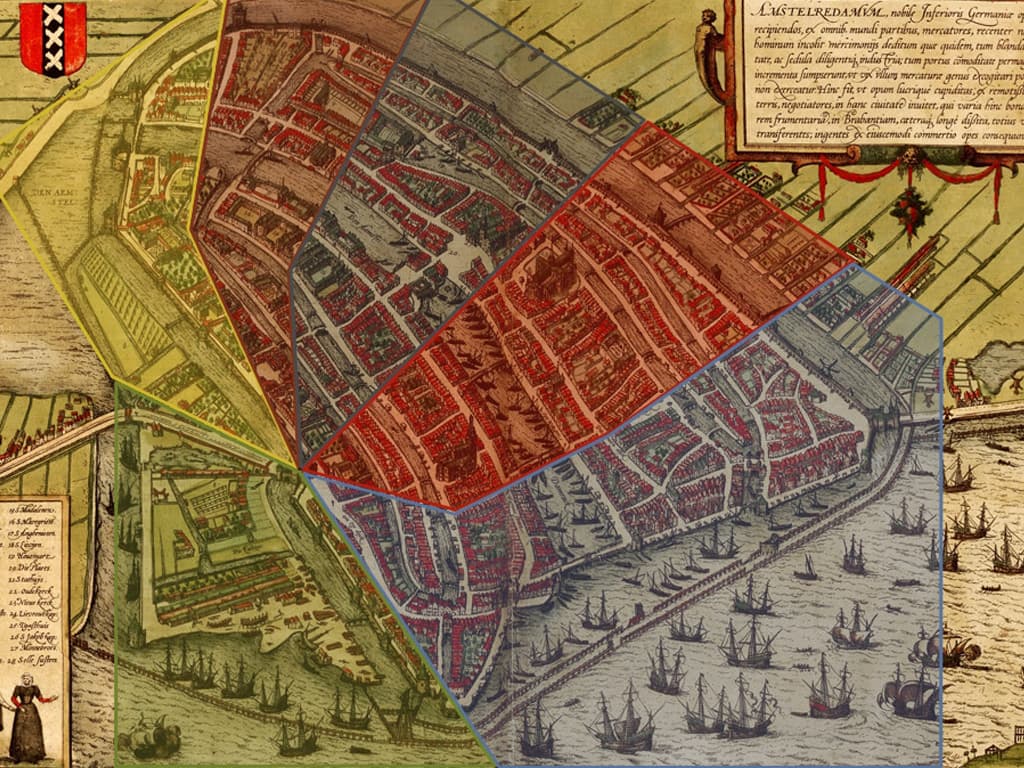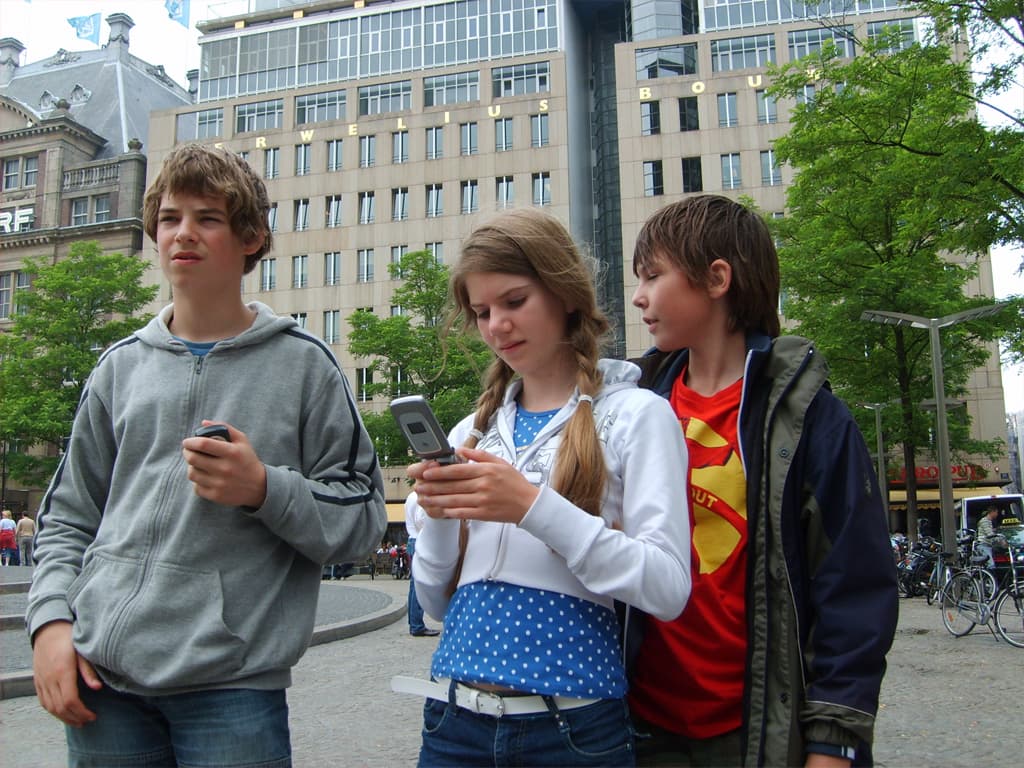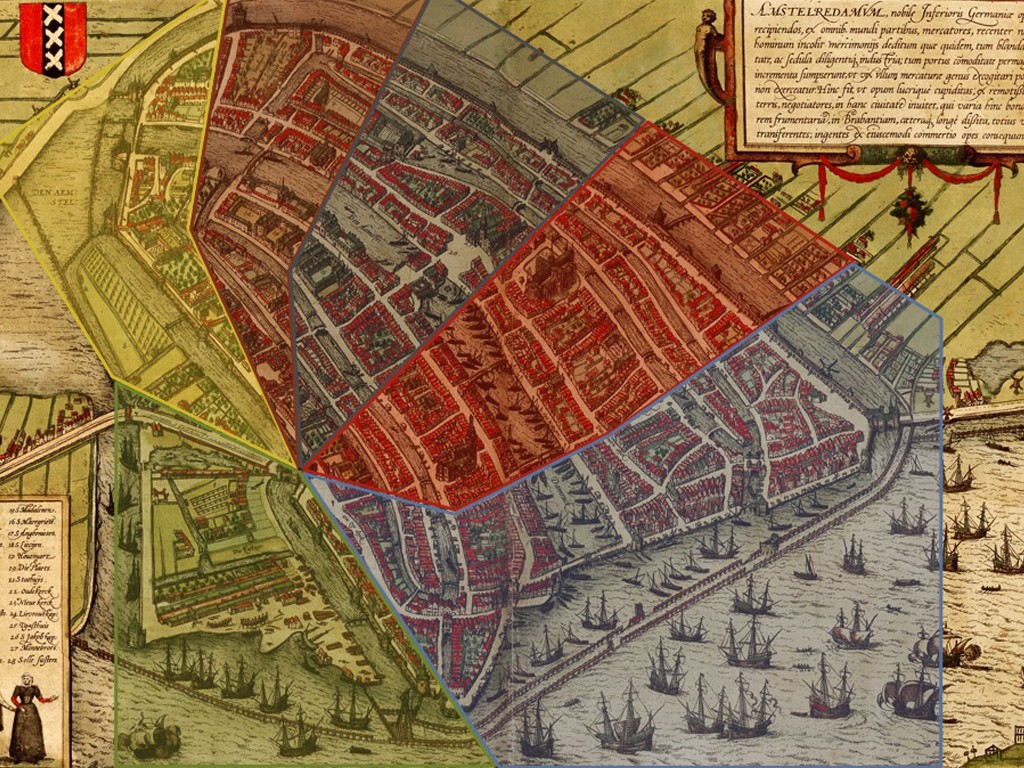Frequency 1550 was a mobile city game that used GPS and UMTS technology to let pupils of the secondary schools actively learn about history instead of passively absorb knowledge. The aim of Frequency 1550 was to bring the Middle Ages alive for pupils, within their history lessons. In 2008, the mobile history game received a SpinAward in the category best gaming concept.
In the beginning of 2005, Frequency 1550 was played for the first time. The reactions were overwhelmingly positive, as well within Waag as with the participating schools. The first pilot even was an item in the Dutch television news. It was decided to play Frequency 1550 again in 2006/2007. The strong and weak points of this first pilot were evaluated, and the game was played again in an enhanced edition with 10 Amsterdam school classes. In the summer of 2007 we could therefore again see groups of schoolchildren with their mobile phones in the city, sending their media to the 'Head Quarter', follow directions given and trying to solve puzzles and coping with difficult assignments.
Research was carried out to measure the effects of 'gaming' on learning by the University Utrecht and the University of Amsterdam. One of the results was that pupils that played the mobile game scored significantly higher on a knowledge test then pupils who had the same material in a traditional lesson.
This was a project in cooperation with Montessori Scholengemeenschap Amsterdam, Open Schoolgemeenschap Bijlmer, the IVLOS (UU), de ILO (UvA) and KPN. The project was partly financed by Kennisrotonde (Kennisnet ICT on Schools) and the Mondriaan Foundation.
The content of Frequency 1550 was further developed on the 7scenes platform for mobile tours and games.


Meta data
Project duration
Links
Publications
Financiers
- KPN Mobiel
- Mondriaan Fonds
Partners
- Montessori Scholengemeenschap Amsterdam
- IVLOS
- Uva -ILO
- OSB Open Schoolgemeenschap Bijlmer

